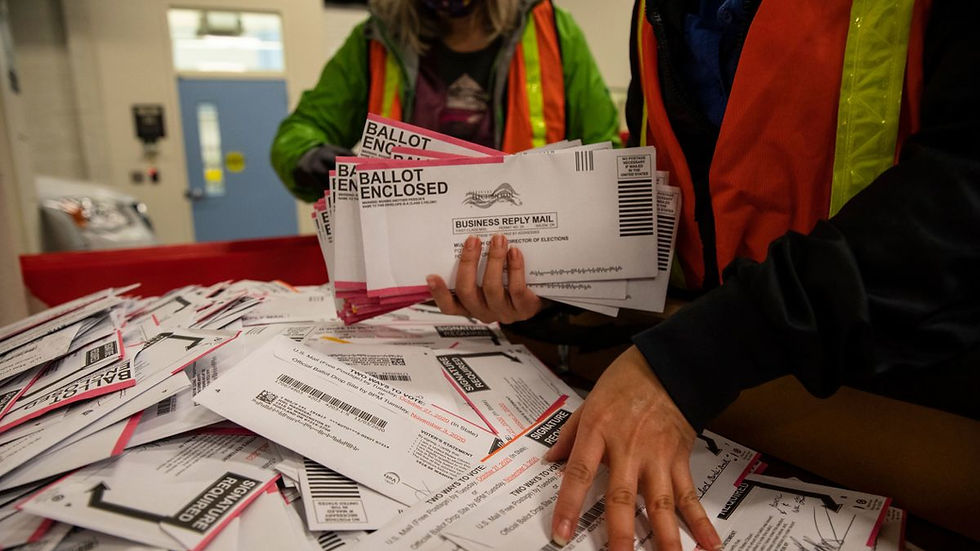Drugs Win Big in Historic Oregon Legislation
- Jackson Tarricone
- Nov 16, 2020
- 3 min read
In the election earlier this month, Oregon became the first state to decriminalize possession of drugs. 1,322, 078 people voted yes on Measure 110, which was enough to pass the legislation. Measure 110, otherwise known as the Drug Addiction Treatment and Recovery Act, made its way to the ballot via a civilian referendum.

Instead of possessors facing incarceration, they will instead face a small fine of up to $100 dollars or a health assessment which must be completed within 45 days of the initial charge. These assessments include a screening for substance abuse disorders by a certified alcohol and drug counselor. From there, if it is deemed necessary, the possessors will be sent to addiction recovery centers, which aim to treat and rehabilitate offenders.Selling and manufacturing any of the Schedule I-IV substances, however, remains punishable by law.
Measure 110 also formed the Drug Treatment and Recovery Services Fund, which will fund the program along with the Oregon Marijuana Account and state savings from decreased incarceration costs. Marijuana tax revenue exceeding $11.25 million per quarter will be allocated to the Drug Treatment and Recovery Services Fund. With this money, the Oversight and Accountability can offer grants to the government or community organizations to build recovery centers. The centers must provide “immediate medical or other treatment 24 hours a day, health assessments, intervention plans, case management services, and peer support and outreach.”
The Yes on 110 campaign was backed by a great number of organizations including the Democratic Party of Oregon, the Oregon Academy of Family Physicians, as well as the ACLU. The campaign received more than $6 million dollars in funding and donations.
In light of the failure of congress to vote on the potentially historic MORE Act earlier this fall, this is a big victory in the fight to shift drug abuse from a criminal offense to a health issue. In addition, an independent study conducted by the Oregon Criminal Justice Commission concluded that this legislation will decrease racial disparities in drug arrests by 95%. To that same end, overall convictions black and indigenous people would drop by 94%. Also according to the report, the decriminalization of these substances will combat other “collateral consequences” of a criminal offense, including “difficulties in finding employment, loss of access to student loans for education, difficulties in obtaining housing” among others.

This momentous legislation comes at a time when Oregon is struggling with drugs. According to the National Institute on Drug Abuse, deaths due to overdosing on either opioids or heroin in Oregon steadily increased from 1999 to 2012 and have remained level since then. In 2018, there were 339 opioid related deaths in Oregon.
While this is a first for the US, several other countries have decriminalized drugs in years past. Portugal, for example, decriminalized the possession and consumption of all illicit substances in 2001. Similar to Measure 110, those caught in possession of an illicit substance would be given a fine and then sent to appropriate medical and support resources depending on an assessment of their individual needs. This was a response, albeit a delayed one, to Portugal’s opioid crisis during the ‘80s, which also coincided with the HIV epidemic. This change in legislation, along with a change in the perception of drug users at a societal level, resulted in a remarkable recovery for Portugal.
Germany too has decriminalized narcotics, even establishing government sanctioned Drug Consumption Rooms to fight against overdosing. In 1994, Germany’s Federal Constitutional Court also ruled against classifying the possession of small amounts of marijuana as a crime. The Court also corroborated a decision reached in a lower court two years earlier, declaring all laws against marijuana to be unconstitutional.
Oregon’s victory on the ballot was not an isolated incident, either. Several other states legalized various substances such as marijuana in New Jersey and South Dakota or psychedelic mushrooms in the District of Columbia.
Recreational marijuana has been legal in Massachusetts since 2016, after legalizing medical marijuana in 2012. The question now is, can—and should—we go even further? Perhaps Oregon will spearhead a progressive rethink of the way Americans view, treat, and address drug abuse.






Comments